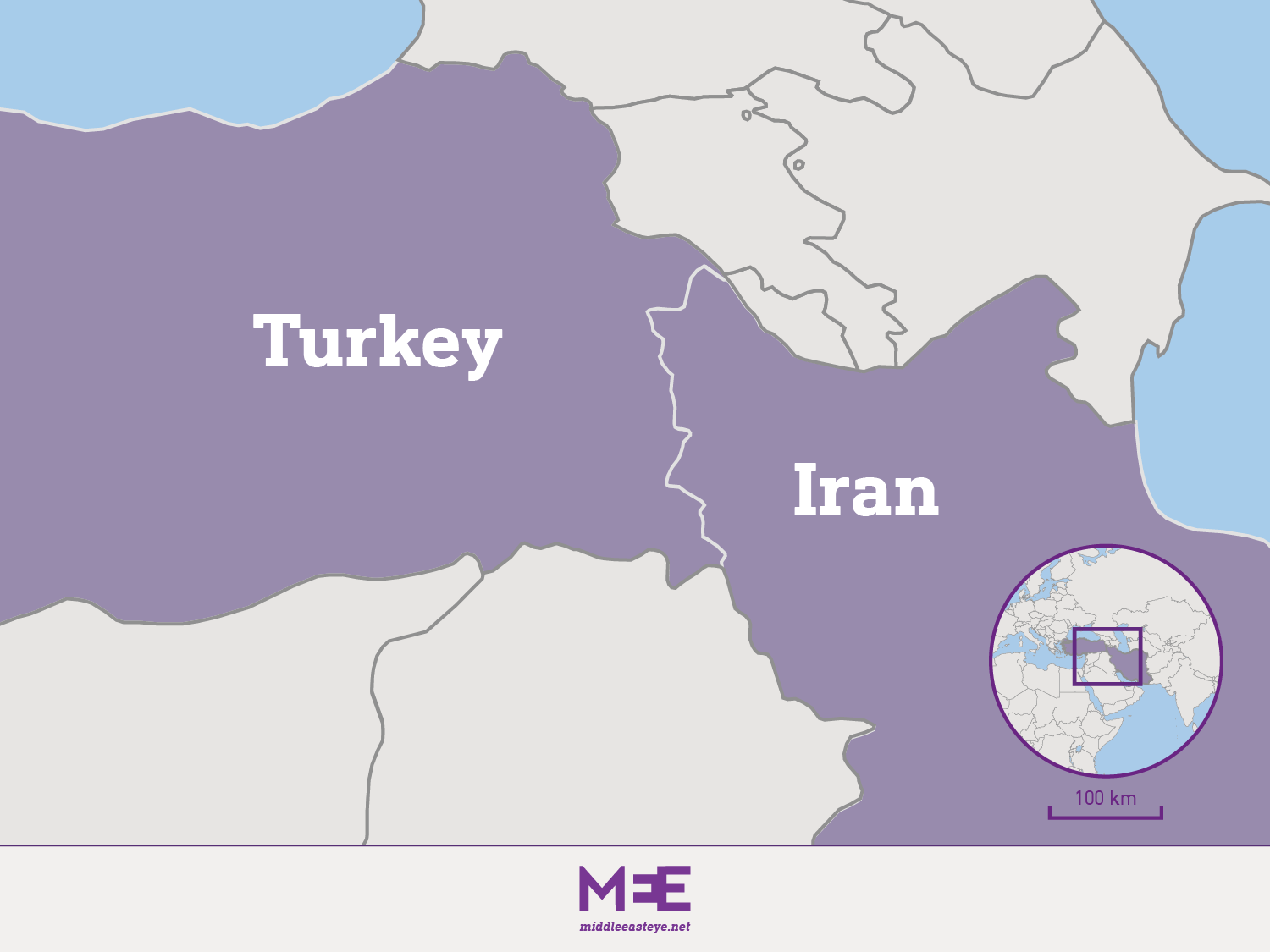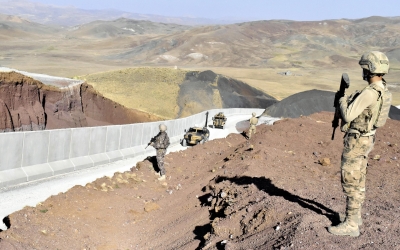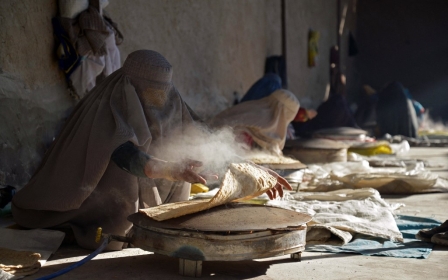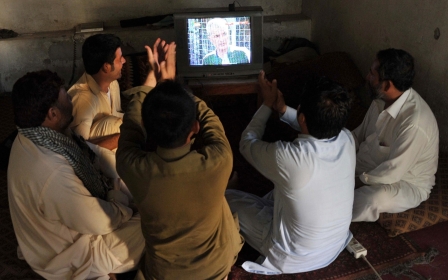Gangs torture Afghan refugees on Iran-Turkey border for ransom
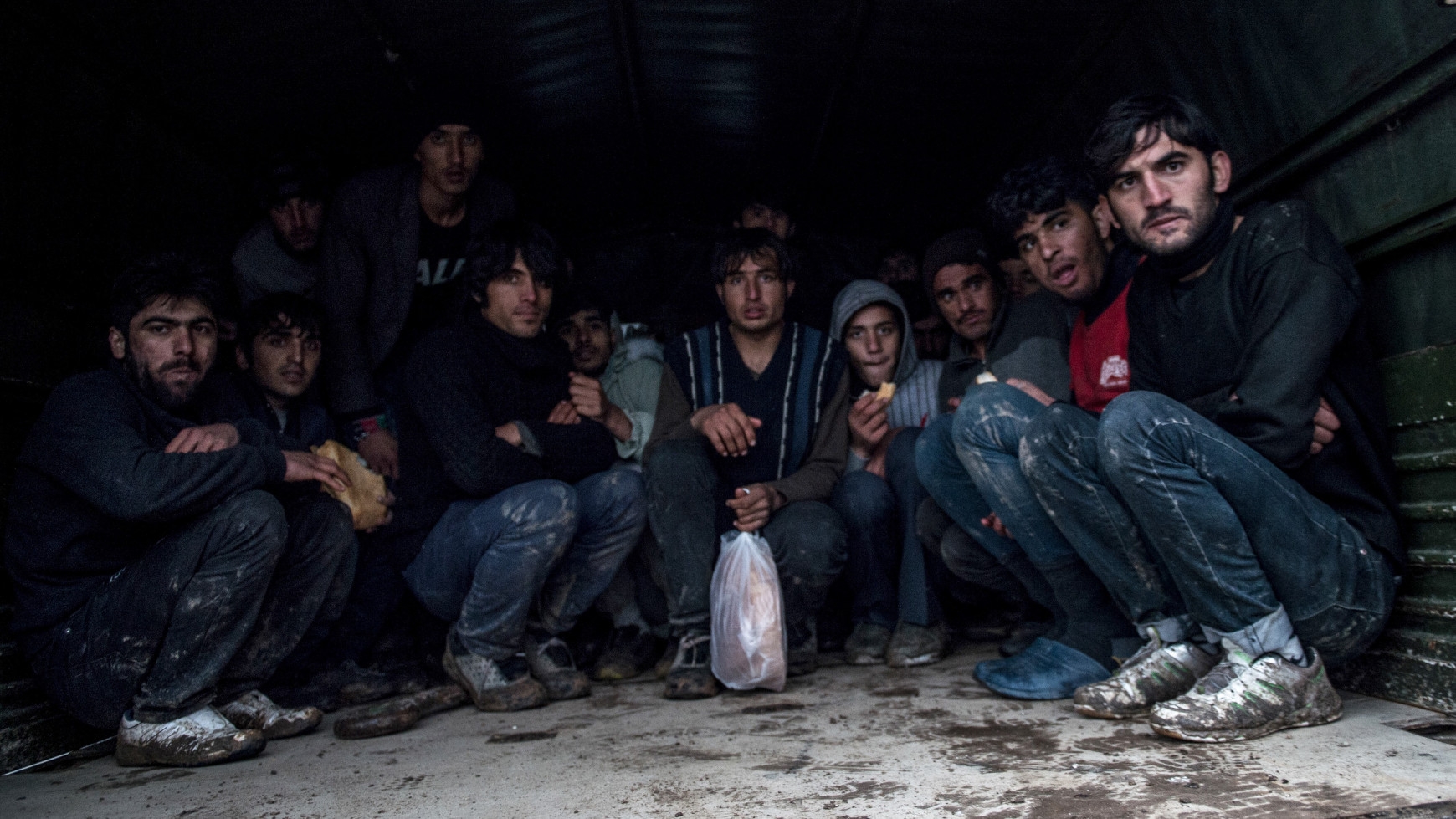
In one video, a group of young Afghan men cower by a rock face, hands tied behind their backs. One of them, who has been gagged, suddenly feels someone grab the top of his left ear. A large combat knife appears, wielded by a man out of shot. He slices down once, then again, and throws down an inch of bloody ear.
In another clip, topless Afghan men, chained together, kneeling on sand, cry and plead as they are whipped with a belt.
In recent months, mobile phone footage like this of criminal gangs along the Turkey-Iran border torturing undocumented Afghan refugees has surfaced - proving the abuse advocates say they have been subject to for years as they try to cross into Turkey.
Over the last two decades, hundreds of thousands of Afghan refugees without papers have entered Turkey in the hope of fleeing the 20-year war between the former Western-backed government and the Taliban.
With the Taliban back in power and the doors to Europe mostly closed in recent years, Afghans say they have been subject to worsening abuse and discrimination in Turkey.
New MEE newsletter: Jerusalem Dispatch
Sign up to get the latest insights and analysis on Israel-Palestine, alongside Turkey Unpacked and other MEE newsletters
Last year, Amnesty International reported that Afghans are routinely killed by gunfire while trying to enter the country.
Ali Hekmat, who has been aiding Afghan refugees in Turkey for more than a decade, told Middle East Eye that he has heard “countless” stories of criminal gangs abusing Afghans, particularly near the Iranian border.
The vast majority of Afghans try to enter Turkey without documentation, so there are no accurate statistics, but Hekmat says he “constantly” receives messages from Afghans being held for ransom by criminal gangs, who blackmail families to pay for the release of their loved one.
Though Afghans occasionally help with the kidnappings, Hekmat says the gangs are mostly made up of ethnic Turks and Kurds often also involved in smuggling networks that charge Afghans trying to get to the European Union by first crossing into Turkey.
'Afghans aren’t familiar with the area, so they find themselves in tiny villages where they become easy prey'
- Sami, Afghan deported from Turkey
“They will take footage of themselves beating Afghans and have them send it to their families,” Hekmat said.
Sami, an Afghan refugee who was deported from Turkey, says that these gangs can consist of just a few people and demand as little as $500.
“Afghans aren’t familiar with the area, so they find themselves in tiny villages where they become easy prey for armed men,” said Sami, who asked to be identified by a pseudonym, fearing reprisals.
The groups take advantage of the fact that these refugees have been walking for weeks through rough, mountainous terrain in Iran before entering unfamiliar areas in Turkey, he said. “They find Afghans at their weakest points, when they are tired, hungry, and lost.
“Even if it’s ten Afghans against only two or three of the criminals, the Afghans are too tired and weak to try and fight back.”
Tracking down the criminals
The Afghans who are held for ransom in cities like Istanbul are at a slight advantage, according to Hekmat, because they have an easier time describing where they are than those newly arriving in rural border areas.
“If they can accurately describe their location, the Turkish police will take the case seriously and try to track down the criminals,” he added. Last month, Turkish media reported that police captured a gang of criminals who had taken five Afghans hostage in the border province of Van.
But most kidnapped Afghans have no choice but to try to scrounge together ransom money.
Refugees speaking to the MEE over the last year said there have also been instances of Afghans being forced to work for their freedom if they cannot pay. This often involves working in fruit orchards for weeks or months at a time.
But as both Hekmat and Sami pointed out, even Afghans who do manage to make it out of such situations are not safe in Turkey.
In November 2022, Ankara said it had deported at least 57,174 Afghans back to Taliban-run Afghanistan, despite the fact that the Turkish government does not recognise the Taliban’s Islamic Emirate as the official government of Afghanistan. (Iran has deported even more.)
In January, a friend of Sami’s was one of the hundreds of Afghans deported back to Afghanistan. And just last week, Afghanistan media reported that Turkish officials had announced plans to deport a further 5,000 back to the country, which is facing a mounting humanitarian crisis.
Middle East Eye delivers independent and unrivalled coverage and analysis of the Middle East, North Africa and beyond. To learn more about republishing this content and the associated fees, please fill out this form. More about MEE can be found here.


